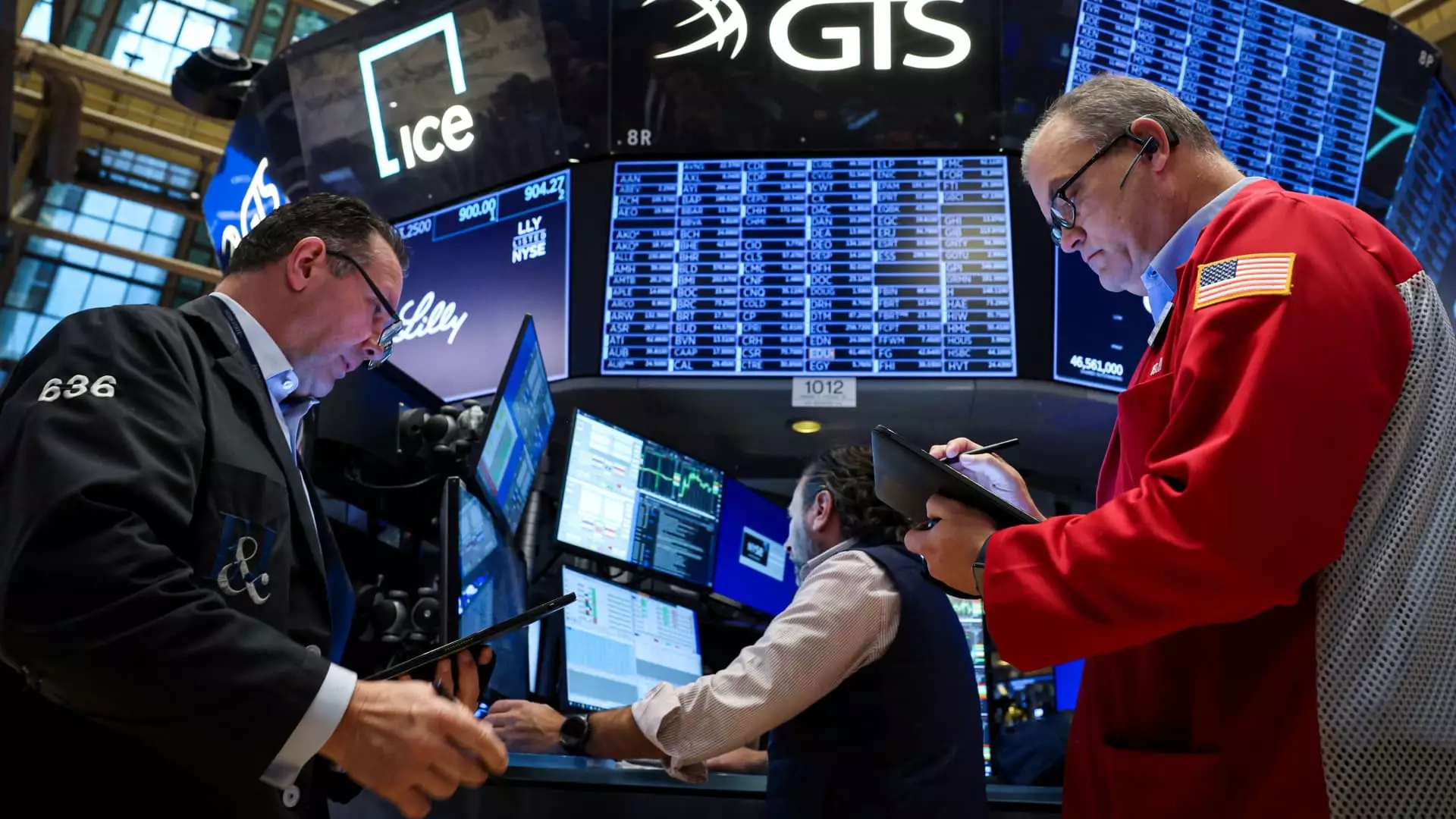As the U.S. presidential election approaches, the financial landscape is feeling the weight of voter apprehension and political tension. This year, the electoral process has been particularly polarizing, leading to an environment of uncertainty for both everyday citizens and seasoned investors. In such times, market fluctuations become pronounced, often creating a sense of unease among those looking to the financial markets for stability and growth. Commenting on the situation, Jordan Jackson, a strategist with J.P. Morgan Asset Management, highlighted that this turbulent period is expected to introduce volatility, urging investors to brace for potential market “choppiness.”
The current volatility is clearly visible in recent trading sessions. The Dow Jones Industrial Average recently endured its largest single-day drop in several months, with significant declines echoed across other indices, including the S&P 500 and Nasdaq. Such drastic movements signal investor anxiety, which appears to correlate with impending electoral decisions. Historical data suggests a pattern: while pre-election periods often present challenges for the markets, they tend to stabilize or even recover as the year comes to a close. This observation provides a glimmer of hope for investors who may be feeling overwhelmed by daily market shifts and political noise.
A substantial portion of the American public, specifically 72% of investors, have expressed concerns regarding the upcoming election’s impact on their financial outlook. Despite these worries, experts like Jackson recommend maintaining a long-term focus rather than succumbing to knee-jerk reactions driven by short-term market fluctuations. It’s vital for investors to stay grounded and adhere to their investment strategies, as historical resilience is often observed in markets recovering from electoral turbulence.
Despite the anxiety present in the market, there are persuasive factors that Jackson and others highlight as reasons for optimism. For one, the Federal Reserve’s recent interest rate cuts reflect a shift towards a more accommodating monetary policy, which could bolster economic activity. Jackson pointed out that current inflation figures have improved significantly from the highs seen in 2022, suggesting a more stable economic backdrop moving forward. Consequently, this positive inflation trajectory sets the stage for increased consumer confidence and spending power, factors crucial for spurring economic growth.
Moreover, corporate fundamentals appear to present a robust narrative, as businesses continue to show resilience amid external pressures. Although Jackson cautions against making sweeping investment decisions based solely on campaign rhetoric, he believes that focusing on consistent earnings reports can lead to better investment outcomes. As consumer confidence begins to rebound, individuals may find themselves in a stronger position financially, despite lingering price pressures. An anticipated shift in consumer spending could signal that the underlying economic fundamentals are solidifying, which would likely further support market recovery.
Navigating the unpredictable waters of an election year requires a nuanced approach. While anxiety is a natural response to such uncertainty, history suggests that resilience often prevails in the markets. Investors would do well to remember the importance of a steady hand and a long-view perspective, as the political climate continues to evolve.

